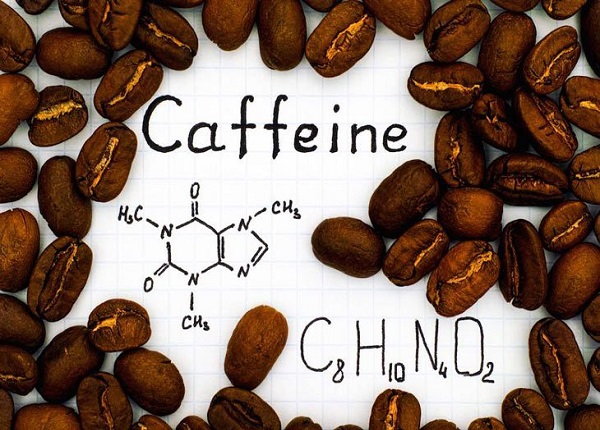Coffee is a familiar and popular beverage enjoyed by millions worldwide. Many consume it daily to stay alert and focused, but have you ever wondered what makes up your cup of coffee? In this article, we will explore the various nutritional components found in coffee and how they impact your health.
Caffeine: The Energy Booster

One of the primary components of coffee is caffeine, a natural stimulant. It enhances alertness and improves mood by blocking adenosine, a brain chemical that promotes sleepiness. The amount of caffeine varies based on the type and brewing method, with an average cup containing about 95 mg, though it can range from 30 to 200 mg.
Consuming caffeine in moderate amounts can offer several benefits, such as improved brain function, enhanced memory, and increased concentration. However, overconsumption can lead to negative side effects, including anxiety, insomnia, and elevated blood pressure.
Antioxidants: Coffee’s Health Protectors

Coffee is a rich source of antioxidants, with polyphenols being the most prevalent. These compounds help protect the body’s cells from damage caused by free radicals, unstable molecules that can contribute to aging and various diseases.
The antioxidants have been linked to a reduced risk of chronic conditions like heart disease, diabetes, and certain cancers. Additionally, they support immune function and help slow down the aging process.
Chlorogenic Acid: A Multi-functional Polyphenol of Coffee

Chlorogenic acid, is known for its anti-inflammatory, antibacterial, and antioxidant properties. It also helps regulate blood sugar levels, making it beneficial for those managing diabetes.
This compound contributes to the distinctive taste, providing a mild acidity that balances the bitterness of caffeine.
Lipids in Coffee
Though coffee contains a small amount of lipids, primarily in the form of coffee oils, these oils are rich in linoleic acid and oleic acid. These fatty acids offer anti-inflammatory benefits and protect the body’s cells from damage.
In terms of health, lipids can contribute to improved heart health by reducing inflammation.
Protein and Amino Acids: Building Blocks of Health
Coffee contains trace amounts of protein and essential amino acids that are vital for repairing tissues and supporting overall health. Although the protein content in coffee is insufficient to replace primary dietary protein sources, it still plays a role in maintaining the body’s wellness.
Vitamins and Minerals: The Nutrient Boost
Coffee offers a range of B vitamins, such as B2 (riboflavin), B3 (niacin), and B5 (pantothenic acid). These vitamins are crucial for converting food into energy and supporting the nervous system’s functions.
Additionally, coffee contains essential minerals like magnesium, potassium, and manganese. Magnesium helps regulate muscle and nerve functions, potassium assists in controlling blood pressure, and manganese supports enzymatic functions in the body.
Plant Compounds: Beyond Caffeine
Trigonelline is a plant compound in coffee that breaks down into niacin (vitamin B3) during the roasting process. This compound offers antibacterial properties and helps protect tooth enamel.
Meanwhile, cafestol and kahweol are two diterpenes found in coffee oils. These compounds have anti-inflammatory effects and can protect the liver. However, unfiltered coffee can lead to increased cholesterol levels due to these compounds.
Coffee’s Impact on Health: The Benefits and Risks
The Benefits of Coffee

Moderate coffee consumption offers several health benefits:
- Mental Alertness: Caffeine improves cognitive function, enhancing focus, memory, and mood.
- Disease Prevention: The antioxidants help lower the risk of chronic diseases like heart disease, diabetes, and certain cancers.
- Liver Protection: Compounds like cafestol and kahweol contribute to liver health and may reduce the risk of liver diseases.
The Risks of Overconsumption
While coffee can be a healthy addition to your diet, excessive consumption can lead to several health issues:
- Anxiety and Insomnia: High caffeine intake can cause restlessness, anxiety, and trouble sleeping.
- High Blood Pressure: Overindulging in caffeine can temporarily raise blood pressure, which may be problematic for those with hypertension.
- Cholesterol Concerns: Drinking unfiltered coffee (such as French press coffee) can elevate bad cholesterol levels due to the presence of cafestol and kahweol.
Best Practices for Coffee Consumption
Moderation is Key
To enjoy the benefits of coffee without the negative side effects, aim to consume 1-2 cups per day. This moderate intake allows you to experience the positive effects of caffeine and antioxidants without overloading your system.
Pair Coffee with a Balanced Diet
For optimal health, incorporate coffee into a well-rounded diet that includes fruits, vegetables, lean proteins, and whole grains. This balanced approach ensures you’re getting the full spectrum of nutrients your body needs.
Final Thoughts
Coffee is more than just a delicious and energizing beverage; it’s packed with beneficial compounds like caffeine, antioxidants, chlorogenic acid, lipids, carbohydrates, proteins, vitamins, and minerals. However, as with any food or drink, moderation is essential to reap its benefits while avoiding potential health risks. By choosing high-quality coffee and consuming it mindfully, you can enjoy all the perks of this beloved drink without compromising your health.

